A British-Pakistani main character, set in Yorkshire and a sci-fi theme: three things not seen together very often on the big screen. Thanks to director Moin Hussain and star Faraz Ayub, Sky Peals brought all this and more to audiences across the UK this August and last year in Venice, where the film premiered.
Backed by the BFI, the film follows the story of main character Adam (played by Faraz Ayub) and his inner conflict with his identity as he learns previously unknown information about his father.
I had the pleasure of chatting with Faraz earlier this month to learn more about his experience on set, his career so far and his feelings about filmmaking.
The Amateur’s Take: First of all, it's definitely been quite an experience after watching Sky Peals - I definitely was not sure what to expect going into it because the trailer didn't give very much away either! You've seen my review, I definitely loved your performance in it for sure - it was very, very enjoyable. I was wondering when you started work on the film, when you first realised what Sky Peals was about, did that feel like very new territory for you or was quite easy to get comfortable with that kind of story?
Faraz: That’s a great question, it was new territory. It was definitely a challenge and when I first got the script, I didn't realise exactly what it was about straight away, I had formed my own view on what the story was about. It was only when I got to meet Moin, the director, and spend time with him that I really started to see where he was coming from and his vision. It was then that I really started to understand what it was about and looked upon it as a challenge, because he’s [Adam, Faraz’s character] very withdrawn.
He has a very lonely existence which was quite intense, with a real lack of energy, which came about through workshops that I did with Moin, but it definitely was a challenge as I’d never gone up for or been given parts like that before.
The Amateur’s Take: So it sounds like yes, definitely a challenge but you welcomed it.
Faraz: Yeah definitely, to be given the opportunity to be in a production like this shot on film, I took it with open arms.
The Amateur’s Take: To be honest, I haven't seen a poor review of the film and so I think your viewers have taken it with open arms as well. But on that note, I think as viewers or as the average cinema-goer, we usually forget how much of a journey these films go on.
Having a little Google around, I didn't realise it premiered at Venice last year so you've been talking about this film for a while now, right? So it's been a very long journey it seems, one where you’ve been hailed as one of Venice’s fresh faces so what was that experience like?
Faraz: Wow, you know, I don’t really read reviews much myself so you’re telling me all this and it’s a really nice compliment. It's very humbling. Venice was amazing, such a great experience. I mean, if you love films and you go to celebrate them in a place like that? Great experience. The film was very well received there too.
The Amateur’s Take: It definitely was - there wasn't much media coverage of the event last year. So it was hard to see what the atmosphere was like, but from what you're saying, it seems like it was truly fantastic.
Faraz: There's all these indie films premiering from around the world and after the screening we go to a little spot where everybody kind of gathers for a little party, you do press, dinner and drinks and things like that. So it’s great to kind of have films celebrated in an atmosphere where there are filmmakers and actors from around the world.
The Amateur’s Take: Obviously, you had such great reception at Venice and it's also been great to see the BFI back films like this. You know, that was a welcome surprise as someone who is aware that films and stories like this don't get distributed very equally among actors of minority backgrounds.
There's been some amazing storytelling and work done in that space over the years: for myself, notable examples have definitely got to be Four Lions, all of Gurinder Chadha’s films. And notably, when I was growing up, Ackley Bridge really did it for me, which I believe you starred in as well.
Faraz: Only a small role!
The Amateur’s Take: Small role! But still, God knows how many times I rewatched that, but I'm curious to hear in that light if there are any stories or performances that have stuck with you from our background over the years.
Faraz: I mean, you mentioned Four Lions. I think that was definitely a very important film. Muslims and Pakistanis engaged with that film a lot differently than white audiences did. And I think for me, that was the first time we had authentic working class, South Asian characters that were genuine. I remember reading about the research the actors did and they actually went up to the Northern towns and cities and spent time with the locals and so I think that definitely stood out.
There's another film I always like to mention by Sam Masud, called My Pure Land, from about five or six years ago. He’s a British-born director as well and that’s really resonated with me. It’s on Amazon, I’d recommend it to anyone that hasn’t seen it.
The Amateur’s Take: There's obviously a lot of work to be done in that space as much as that work's been notable. I know that you've commented on that in the past, that you feel there’s a lot of stories left to be told even though Sky Peals is a great step in the right direction with that kind of storytelling. You mentioned there about how Pakistani or Muslim or British Asian audiences have definitely viewed films and stories like this in a different light to white audiences. Do you think that’s a good thing? Do you think that it's important that white audiences go and see stories like this?
Faraz: Of course. Yeah, I think stories are universal, aren't they? And that's the thing. You know, we like to make it as though it's ‘their’ stories or there's stories about groups, that's not true. A good story will appeal to everybody and I think yes, it's very important whether you're white or brown and your perspective but the human experience is the human experience, you know? For example with Sky Peals, people from all backgrounds have had feedback on how they just relate to Adam’s loneliness and isolation, how they were really emotional even though he is a British Pakistani character, but it's not just about that. That's who he is but his experience is felt across the board.
The Amateur’s Take: I think things like the sci-fi genre that Sky Peals takes on helps to make that story universal, right? It's a nice general gateway for everyone to approach the story from so I totally agree with you there.
I personally went to go and watch it with another Pakistani friend of mine. We were quite emotional throughout the whole film. Your character is very dominant in the film for sure, I don't think there are many frames that you're not in it which must have been quite demanding on you but having said that, it's not like your character has the most dialogue in the world! It makes me wonder whether it was a big challenge to act as a character of little words?
Faraz: To be honest, anything you go into is a challenge whether it is involving dialogue or not. In this case, it was more the internal work you need to get to that point where you're just telling the truth you know? That’s something that Moin gave great creative freedom to do. I did a workshop with him where we really studied the character, brought other actors in, in order to get to that level of intense restraint. When you’re filming every day, like you said, I’m in every frame of a six-week shoot with 13 hour days which all helps and contributes to creating that character.
The Amateur’s Take: It makes a lot of sense for a character that’s so intense in his feeling and so deep in his conflict that you need that time with it. So it's great to hear that you were able to do so much workshopping on the character with Moin. Having a look at Moin's intentions around the theme of mixed race identity and dual identity, it feels like a very prevalent message at the moment. Was there anything specific you wanted audiences to take away from Adam’s inner conflict?
Faraz: I don’t think that's something you can really think about as an actor. Your job is to create the truth and do the best work you can, what people take away from it is kind of out of your control but I can definitely see that in today's times, it is resonating on a different level because of identity politics at the moment.
The Amateur’s Take: That makes perfect sense. As viewers we don't usually think about what the actor's intentions are. But I always find it interesting to see if there is an intention; if there is something that an actor thinks about.
There's definitely been some significant conversation over the past few years about how Asian actors are cast in these types of roles and when British Asian actors are successful, how they might end up being typecast. Over the past few years Dev Patel, for example, has spoken about it quite a lot and then you've got actors like Riz Ahmed or Guz Khan who are playing roles that aren't really defined by their ethnicities, to an extent.
I think the relatability of Adam's character in Sky Peals is not defined by his ethnicity and we've just mentioned how the sci-fi genre really opens up that relatability. On that note, there are a plethora of young British Asian wannabe actors that are out there, waiting to get the start of their dreams in the career that they want. You've been in this business for quite a while. Would you have any advice for them?
Faraz: The actors coming in now, I think they're coming in at a time of change, you know. There's going to be opportunities for them to play characters, I think, that are non-stereotypical, there's going to be a lot more opportunities for them to do that. In terms of the downside, times have not really changed in terms of the kind of roles that people are getting - being an actor is as hard as it's always been, you know? So I’d encourage people to be sure that this is what they want to do. People don't really have to wait for opportunities as much now, but I would still encourage people to go to the traditional route: go to drama classes, go to acting classes, learn your craft. You're coming out at a good time in the business, just be sure it’s what you want to do.
The Amateur’s Take: Was there a time you weren’t sure whether this was something you wanted to do?
Faraz: I think actors will be lying if they didn't say there's times where you go through the typical struggle and you don't question whether this is something that you really want to continue to do, you know? I heard from Stephen Graham that after his first breakthrough role, a fantastic performance in This is England, he couldn't work for months after that because of people stereotyping him in regards to the character. He said he thought about quitting, considered leaving the profession, and obviously he didn't because I think a year later, he got something else, but even someone like Stephen Graham thought about it too, you know?
The Amateur’s Take: I'm very thankful that Stephen Graham did not stop acting, he's made some amazing things since! On that note, there’s definitely been conversation about what makes a professional actor. Now, that you've gotten your feature film debut, do you feel like a professional actor now? Is that something you ever think about?
Faraz: That’s a brilliant question - people talk about imposter syndrome a lot: I’ve got friends that are creatives, photographers, painters and things like that and to them success is defined as just doing it and people embracing what you're doing. Sending a message across with your work and people understanding what that message is and liking your work. I can definitely say now that this is what I do for a living. People kind of know me now and it's a lot easier when you say you're an actor, people recognise what you've done.
The Amateur’s Take: I think that's a lovely sentiment to hear. And it is very true that obviously, in the era of mass media, being recognised definitely does equate to success, especially in the creative arts; that matters a lot. Like you mentioned with new actors coming into the business, there are more opportunities for that recognition now. And I think I talk for a lot of viewers when I say we're very thankful that actors like yourself are getting that recognition playing the roles that you've been given.
The whole aim of The Amateur’s Take is to try and champion amateurism in cinema, to try and encourage everyone to watch a film to enjoy their own unique experience. So on that note, obviously Sky Peals is a British indie film, backed by the BFI but it came from humble beginnings. I think you'll have a great insight on this, but why do you think we need the amateur filmmaker? Why are the smaller stories so important and what is it about them that's so crucial.
Faraz: I love what you’re doing with it, that's amazing. I think I would love to see this generation really love and embrace film and film culture. It's important for amateurs to make films because you need stories from people from different backgrounds. It's important for everybody to tell their story and not just have one demographic dominate, especially for people who don’t necessarily come from a background where they have access to this. Even for people who are interested in the creative arts can have the opportunity to see their stories being told.
The Amateur’s Take: I agree, the crux of what you're saying is we need the amateur because we need that story. Even with stories as niche as Sky Peals, there are aspects of identity that are not being shared, aspects of stories that are not being told, and I can only hope that it continues to move forward the way it has in the past decade because we've definitely seen improvement and for myself to grow up in a time of change, where these stories are being told a little bit more, that's definitely a very exciting thing. It must be very exciting to be in the industry at that time of change as well.
Faraz: It definitely is, yeah, a very exciting time.
The Amateur’s Take: Thanks so much for your time, really excited to see you in your next project.
Faraz: No, thank you, some great questions, I really enjoyed it.
You can find showtimes for Sky Peals near you by clicking here. You can find my review for the film on Letterboxd here.

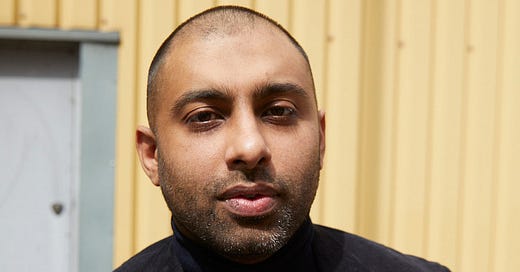


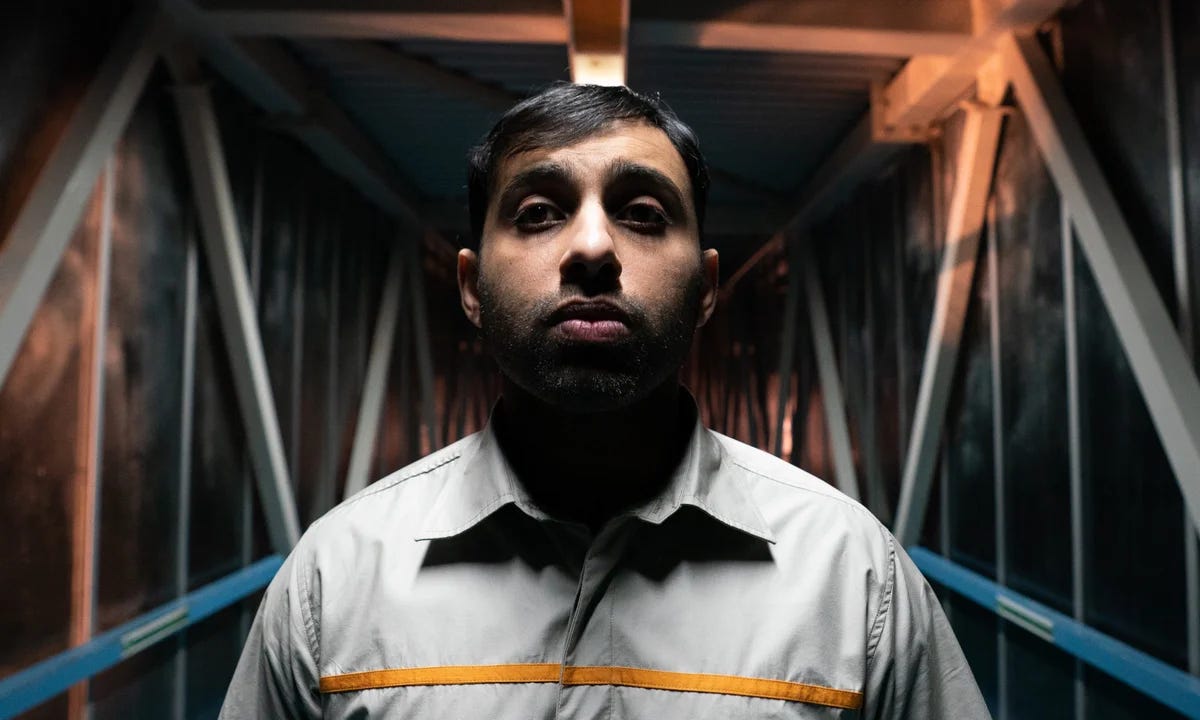
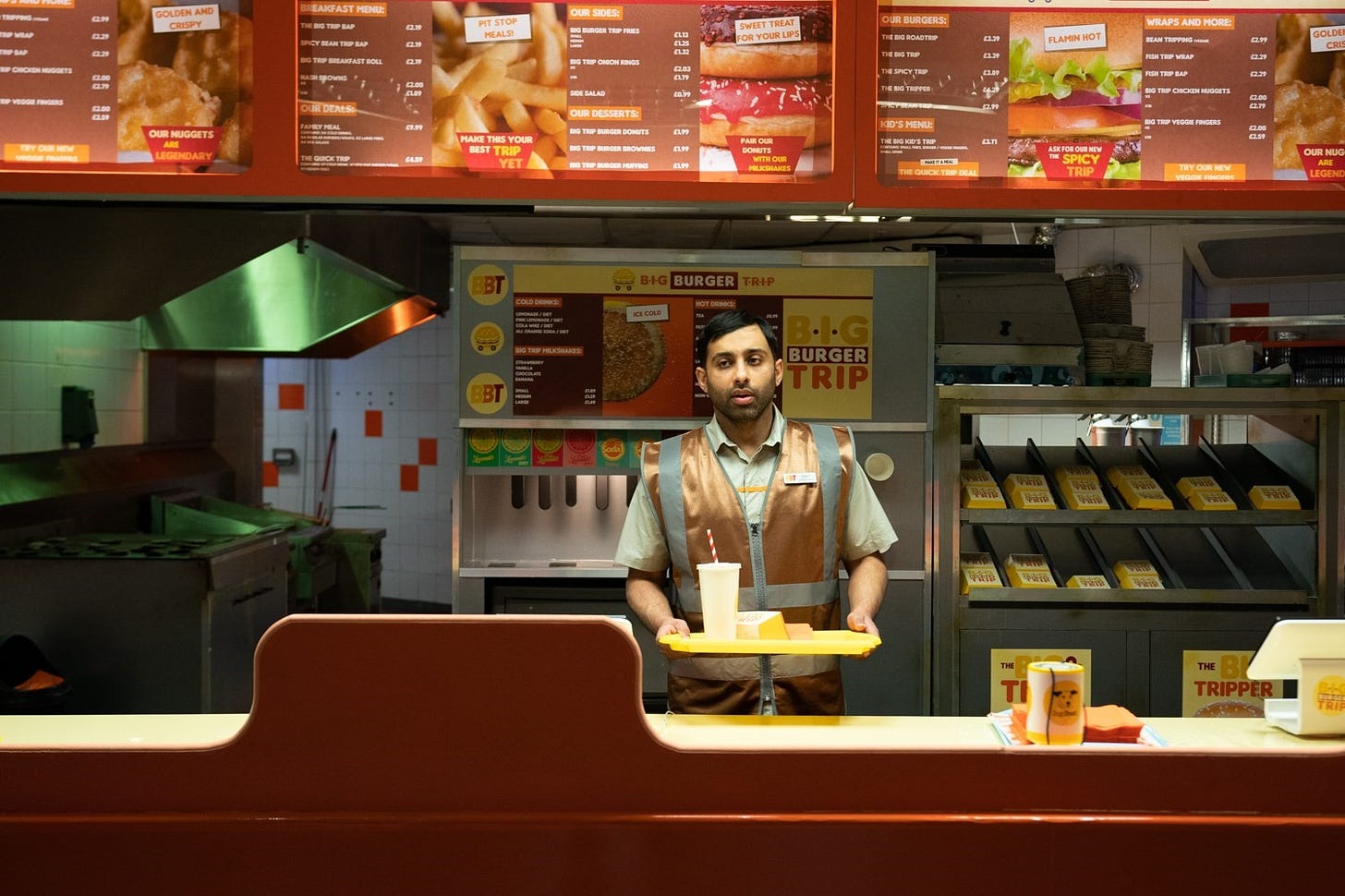
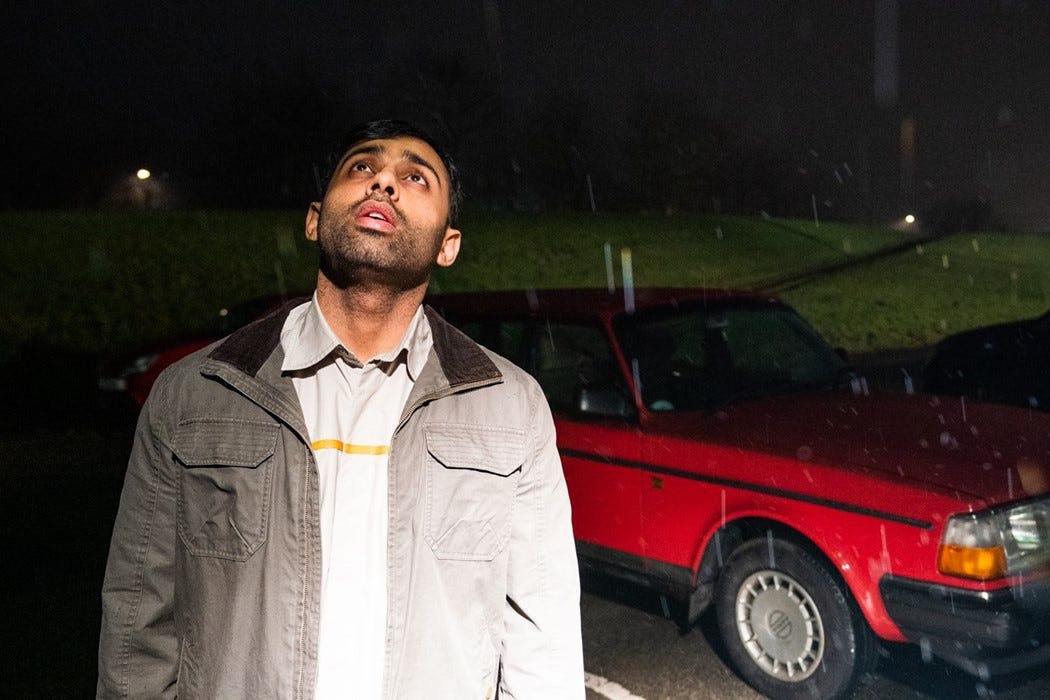
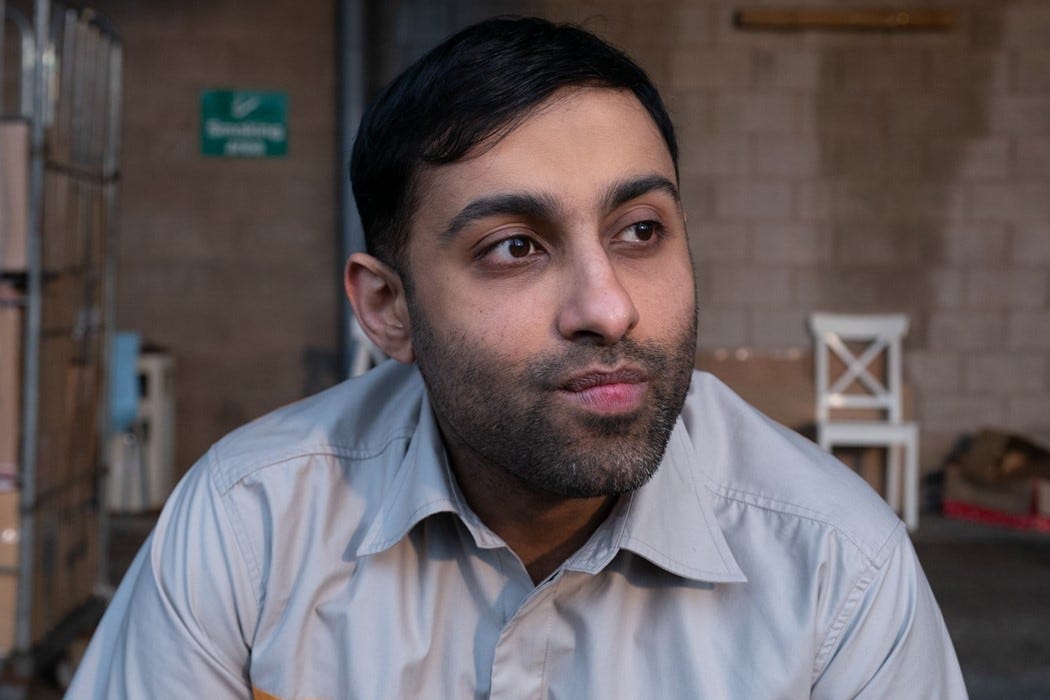
Fab, great interview and a great film, loved watching with you! (I am Pakistani friend)